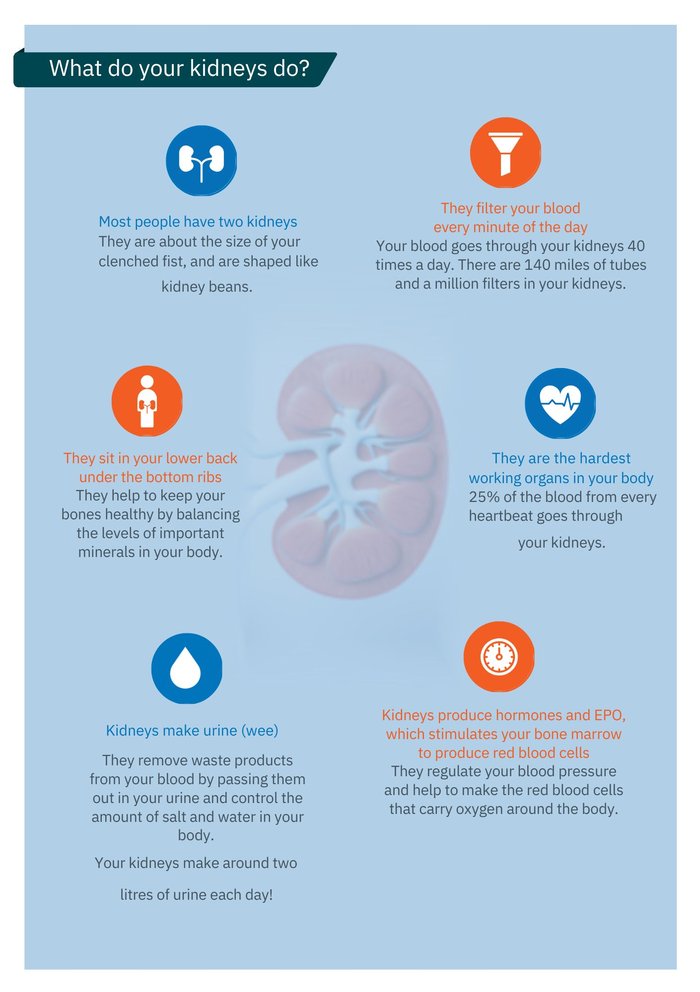Chronic kidney disease (CKD) is a lifelong condition where your child’s kidneys do not work as well as they should. Waste products start to build up in their body as their kidneys can’t remove them properly. Damage to their kidneys’ filter system lets protein leak into the urine.
The term ‘chronic’ means that it is a long-term condition. It does not necessarily mean that the condition is severe.
CKD affects around one in ten adults in the UK but is very rare in children. It is caused by different conditions that affect the kidneys. Some of these are present at birth, and others start later in childhood.
Most children with CKD have very mild symptoms that can be managed by their GP.
You and your child will learn more over time about how to help manage their CKD and what to expect. Although there is currently no cure for CKD, specialist care will help your child live as full and healthy a life as possible.
There is lots more information about CKD on the Kidney Care UK website.
